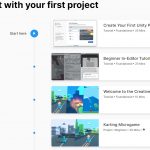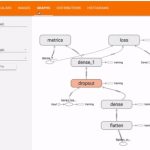Odoo, formerly known as OpenERP, is business management software including CRM, E-commerce, Sales management, Warehouse management, Purchase management, Accounting suit, Manufacturing management, HRMS, etc.
Table of Contents
Tutorials and Courses
- Odoo Developer Document – This official document includes everything for a developer to know and develop a module for Odoo.
- Odoo Slides – Another official resource to learn about this open-source ERP. While the developer document is about each component, this Slides section is about using Odoo to handle business logic.
- Odoo: The complete Master Class: Beginner to Professional – This course will teach about the basics of Odoo ERP, including Installing, Configuring the popular Odoo Modules and advanced Odoo Administrative features.
- Odoo 11 Development Essentials – Learn to scaffold a new module, create new models inside it, and use the proper functions (business intelligence) that make Odoo the best ERP out there.
- yenthevg – This blog is very useful for anything related to Odoo. It provides lots of tutorials. They are straightforward and help users solve a lot of problems related to Odoo’s features and coding.
Books
- Odoo 12 Development Essentials – Explore Odoo 12 capabilities to develop business applications.
- Odoo Book V13 – Odoo 13 Book is a complete user manual for readers who are looking forward to implementing the all-in-one business application.
Best Odoo Apps
- Odoo 13 Accounting – This Module will bring back the accounting features such as Account Reports, Asset Management, and Budget Management into Odoo 13 Community Edition.
- Bureaucrat Helpdesk Lite – Bureaucrat Helpdesk module allows you to organize a company service desk. You can configure categories, types, and stages, set up routes of requests, and provide request handling.
- Open HRMS Core – A simple, easy-to-use, and intuitive tool helping employees and management to perform at full potential, boosting productivity and overall employee satisfaction. Open HRMS offers a 360-degree overview of employee and their skills.
- Database auto-backup – Keep your Odoo data safe with this module. Take automated back-ups, remove them automatically, and even write them to an external server through an encrypted tunnel.
- Product Barcode Generator – The module automatically generates EAN13 standard barcode for each product while you create it. The module also introduces a new feature to print product variant prices on the product label.
- Web Digital Signature v13.0 – This module is helpful to make your business process a little bit faster & makes it more user-friendly by providing you with digital signature functionality on your documents.
- Project Report XLS & PDF – This module enhances project management with intuitive reports. Reports consist of task details with respect to the selected project.
- Project Task Timer – Track hours with a button that starts & stops your task and records your actual working hours.
- Shopify Odoo Connector – Using this connector, a seller can integrate Shopify Store with Odoo and manage different operations such as publishing products to Shopify, Importing Orders to Odoo, and much more.
- Dashboard Ninja – create beautiful, customized, and robust dashboards for your different departments.
- Odoo WooCommerce Connector – Odoo WooCommerce Connector will help you integrate and manage your WooCommerce store in Odoo. Perform various operations like Importing Orders and Customer Data, Updating Inventory, Updating Order Status, Importing & Exporting Products, Product Categories, Product tags, and much more. Automate various vital tasks like Order Import, Order Status Update & Stock Update to ease your work.
- Mass Mailing Theme – With this module, you will be able to create beautiful, mobile-compatible mails with your own brand colors.
- Odoo Multi Vendor Marketplace – The module transforms your single e-commerce website into a working e-commerce marketplace. Your sellers would signup and sell their products.
Tips
Change user’s default landing page after login
Let’s say you want to set the Inventory page as the default landing page:
- Activate the developer mode (see the tip below for this part).
- Access
Settings > Technical > User Interface > Menu Items - Click on the Inventory page to view its settings.
- Modify the Sequence field to 0.
Useful command lines
//restart odoo instance to reflect changes in modules sudo service odoo-server restart //show last 100 lines of log tail -f -n 100 /var/log/odoo/odoo-server.log //install and uninstall a module ./odoo.py -d [database_name] -i [module_name] ./odoo.py -d [database_name] -u [module_name]
Enable developer mode
Normally, you can go to Settings and then click the Activate the developer mode button to enable developer mode. There is a method that enables developer mode on any pages I often use.
You just need to append ?debug after the web parameter in the URL. For example, replace http://localhost:8069/web#action=401&model=res.partner&view_type=kanban&menu_id=263 with http://localhost:8069/web?debug#action=401&model=res.partner&view_type=kanban&menu_id=263
Debug QWeb Template
QWeb Template can be debugged by using t-debug="pdb" attribute in your XML template. It is used for debugging the template code.
<t t-debug="pdb"/>



